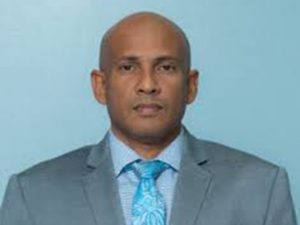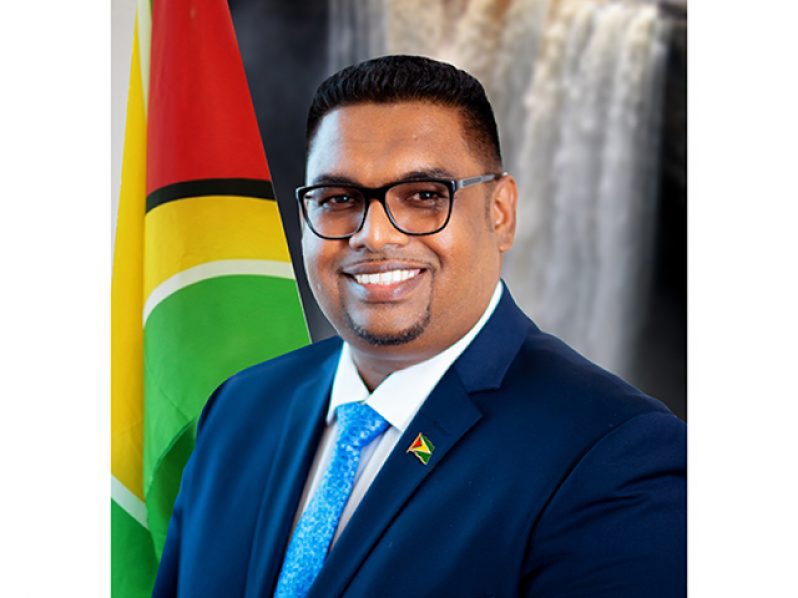– India, Guyana discussing creation of such a system locally
By Navendra Seoraj
MEDICATION and medical apparatus are critical in preserving and saving lives, but digitised medical records, a system ‘sought’ after by medical practitioners, would also contribute significantly to the treatment and management of patients.
The ability to access a patient’s medical history at the click of a button is any medical professional’s dream, as it equips him/her immediately with knowledge to effectively administer care and reduce the unnecessary use of scarce resources.
According to the National Cancer Institute of the U.S, electronic medical records include information about a patient’s health history, such as diagnoses, medicines, tests, allergies, immunisations, and treatment plans.

Electronic medical records (EMR) can be seen by all healthcare providers who are taking care of a patient and can be used by them to help make recommendations about the patient’s care.
The creation of such a system, locally, is being considered by the new Government, said President, Dr. Irfaan Ali, during his remarks at the opening ceremony for the Dr. Yesu Persaud Clinical Education Centre at the Georgetown Public Hospital Corporation (GPHC), last Saturday.
“We are discussing, right now, with the Indian High Commissioner, the electronic medical records system that is from birth to death…every citizen of the country will have an electronic management of their medical records,” said President Ali.
The system, he said, will be available countrywide, at both public and private medical institutions.
In speaking about the potential benefits of this project, President Ali said: “So, whether you move from Georgetown to West Demerara, you do not have to move thick layers of files…your health records are there in the system and can be accessed at the private level and at the public level.”
In a country like Guyana, this will be particularly helpful because it would allow doctors from different regions, across the country, to link patient records.
“EMR is quite sought after… for instance, if you have a patient from Bartica that is referred to Georgetown, you can actually see what the history of that patient is, from the time he/she first came to the attention of a doctor, to when you are planning treatment,” said renowned local Cardiologist, Dr. Mahendra Carpen, in an invited comment on Wednesday.
Such a system would allow doctors to use the available data to diagnose persons accurately and quickly. The allocation of health resources would also be done efficiently because there would be no duplication of efforts.
Authorities would be able to track their spending and identify areas where there is underutilisation of resources.
TRACK DATA
“While it presents tremendous benefits to patients themselves, it also helps the healthcare system, as professionals can track data, make informed decisions and see what is the commonest condition that patients suffer from,” said Dr. Carpen.
Practically, the system would drive research, which would be critical in the treatment of many diseases.
“So this is one thing we are anxiously looking forward to… it is about time Guyana enters into the age of medical practice, where we utilise technology that is available… and electronic health record is one thing we could use to improve the quality of care in Guyana,” said Dr. Carpen.
A recent challenge to the medical fraternity not just here but the world over, the novel coronavirus (COVID-19) pandemic, has established the need for EMR systems. In Guyana, over 4,000 persons have been infected by this disease, and there are cases where infected persons would have gone “under the radar” because contact tracing, particularly in hinterland regions, has been a challenge for authorities.
“So anything that you can have, that gives you more data and ability to track patients from the time they seek medical attention or look at who they were in contact with, adds value,” said Dr. Carpen.
MOBILE APPLICATIONS
Just Thursday, it was reported that the Ministry of Health is reviewing four mobile application (app) options that would assist with tracking COVID-19 patients and persons entering Guyana.
Such an app could potentially use geofencing technology; this would create a virtual geographic boundary around a person- through his/her mobile device, such as a phone- enabling the software to trigger a response when a mobile device enters or leaves a particular area.
The role of technology in the fight against COVID-19 remains important, and this was made known by the Pan American Health Organisation in a recent report on “COVID-19 and the role of information systems and technologies at the first level of care.”
According to PAHO, in the face of a pandemic, health services — particularly at the first level of care — run the risk of collapsing from an overload of patients seeking care which could be provided virtually by using information technologies.
By facilitating access to health services, Information and Communication Technologies (ICTs) foster greater equity in access to timely medical care, which facilitates the assessment, diagnosis, and management of suspected and positive cases in a safe and effective manner, minimising the risk of transmission.
In terms of the management of health services, PAHO said, ICTs can help improve the cost-effectiveness of treatments and enable the regular, uninterrupted operation of key clinical services, both in the preparatory stages and in the course of a pandemic.


.jpg)











